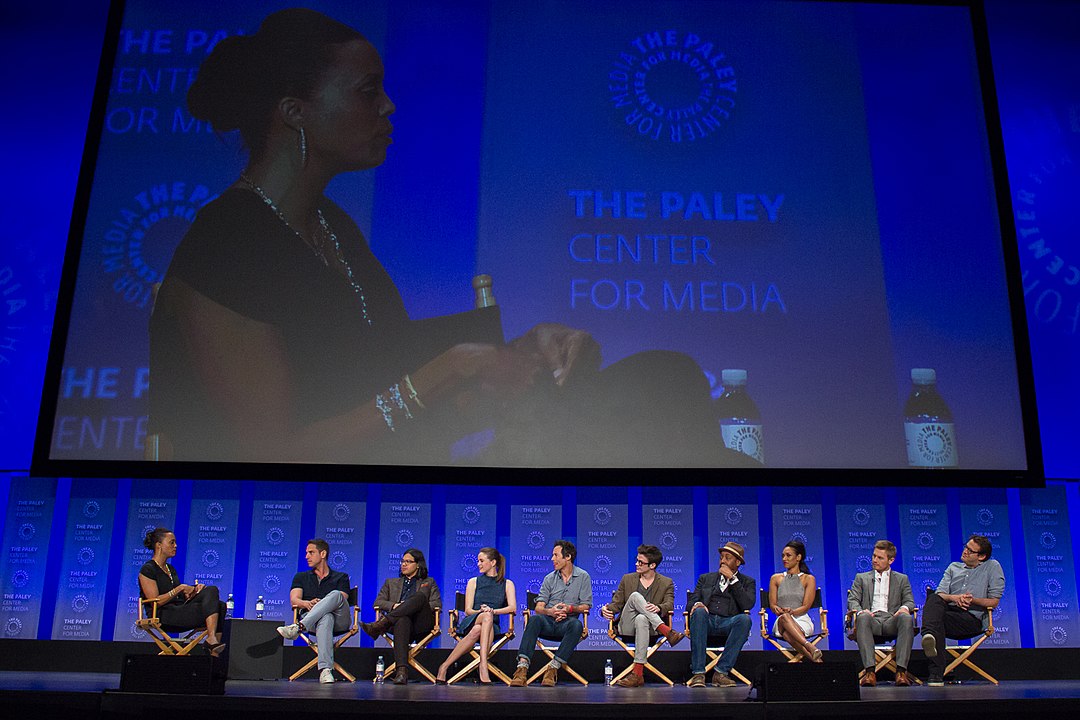Conversations around performances and events really can enhance the experience for people, but making it an effective and enjoyable experience can take some preparation and discipline.
One of my favorite pieces on the practice was written for HowlRound by Brant Russell reflecting on his experience leading the discussions at Steppenwolf Theatre. He presented 11-ish rules that were basically aimed at having the moderator employ the lightest touch while also keeping the discussion away from questions like “how did you memorize all those lines?”
He counsels directors to stay away because they are too personally invested in the show. He cautions that when actors are present, it impacts what it is possible to discuss. It is difficult to keep the conversation about the performance rather than about the performer.
Dance Magazine recently had their own piece on pre- and post-performance talk backs. In it, dramaturg Melanie George says she focuses on what the audience felt to get them to ask questions based on their experiences rather than asking about the performer’s experience.
‘What do you remember? What are you feeling?’ Questions like those are useful because they focus everyone on the work, as opposed to the people making it.”
Brant Russell makes similar suggestions in his HowlRound piece.
For the moderator, he notes they are not a teacher or an expert, nor is there any reason to pretend to be objective. To the greatest extent possible, they should try to stay out of the way of the conversation, though don’t let it perceptually wane. If audience members are having a productive conversation, let it continue unless it gets too heated or is going so long interest starts to wane.
One of the more interesting pieces of advice he gives in regard to a show you, as the moderator, don’t particularly like:
RULE 9: If you really hate the production you’re discussing, just wait. I’ve found that if I lead enough conversations on a play, something will emerge that I will fall in love with. I have never liked a production less as a result of continued discussion.
When I wrote about Russell’s piece when it first came out, I had this bit of insight:
I like the idea that the audience can help those involved with the creation of the production to appreciate it more. We often think of an arts event as something we offer to audiences for their entertainment and education. Typically our end of the transaction involves receiving money and applause.
The Atlantic recently had a good article by Yascha Mounk about panels that are the main focus of an event, such as at conferences and meetings. It is definitely valuable if you are organizing any type of discussion fora, including pre- and post-show discussions.
In the interests of effectively using the little time allotted, Mounk urges panels to number no more than four people; keeping introductions to no longer than 20 seconds per person and eliminating opening statements by each panelist. Attendees are there for a lively conversation. They don’t want to hear a rambling introduction from the moderator or monologues from panelists.

But nothing works without the basics: Choose a topic in which your audience will take a genuine interest. Pick panelists who have real disagreements with one another. That is, make sure your speakers bring different perspectives and backgrounds to the stage.
As much as he secretly feels they are entertaining, Mounk sets some ground rules for dealing with questions from the audience expounding on crazy ideas at length.
But if you do want to stop the cranks from taking over—and despite my strange predilections, you probably should—your job is actually quite simple: Set out clear ground rules before you open the floor to the audience. Emphasize that you are looking for concise questions, not long rants. Make clear that you will cut people off if they go on for longer than 20 seconds. Do.
Moderators are there to advocate for the audience, Mounk says. If panelists are employing technical or specialized terminology, the moderator should ask them to rephrase more clearly. If they are rambling on, move the conversation on. If panelists are talking past each other, get them responding to each other.
If you have ever been canoeing or rafting down a river, the through line of all these articles is essentially that the moderator is at the rudder rather than a prime paddling position. Once you have the conversation moving and people are having a good time, don’t make any radical course changes. If things get sluggish, rally participants to infuse more movement. If things are getting a little too thrilling for the passengers, seek a calmer path.